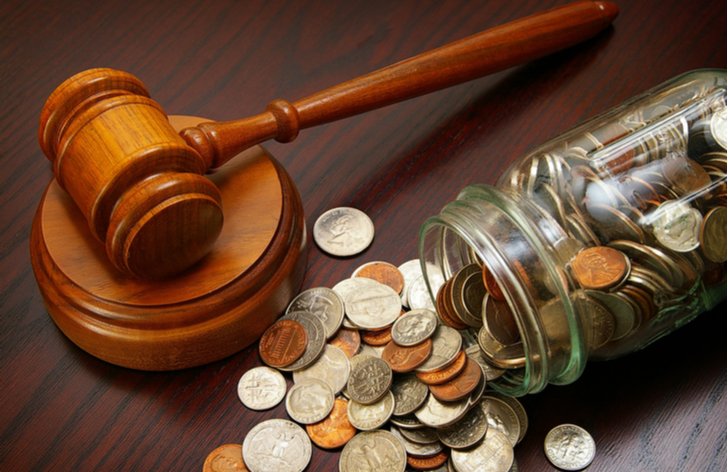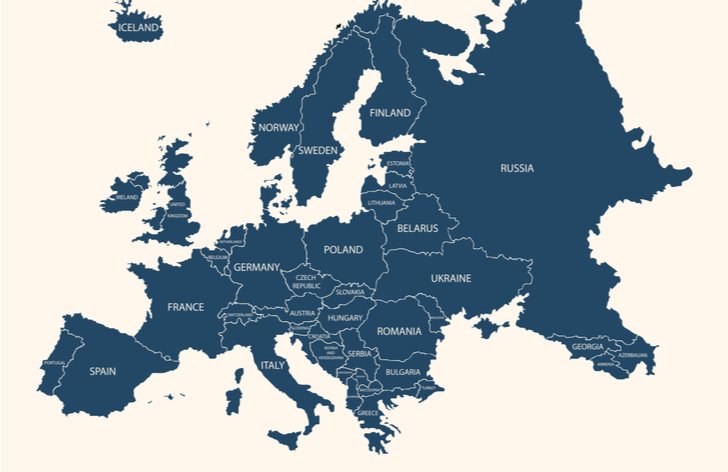* New Greek program to rein in budget deficit buoys market
* Euro gains, but U.S. stocks slip on Obama reform fears
* U.S. bond prices slip on slower private job losses data
* Oil rises toward $81 barrel despite US inventory report
(Updates with close of U.S. markets)
By Herbert Lash
NEW YORK, March 3 (Reuters) - The euro rose against the
dollar on Wednesday after Greece agreed to further budget cuts
in hopes of obtaining European help, while world stocks gained
on data that suggested economic recovery remains on track.
But U.S. stocks pared gains late in the day to close little
changed as the White House stepped up its efforts to overhaul
health-care and banking regulation, sparking concerns about the
potential impact on corporate profits in those sectors. For
details see: [] []
Oil climbed toward $81 a barrel as the weaker dollar and
positive economic sentiment outweighed a U.S. government report
showing a large rise in crude inventories. []
In a sign of market optimism, some key risk premiums in the
short-term U.S. interest rates market registered their tightest
levels ever, prompted by the view the Federal Reserve will
maintain its ultra-loose monetary policy into late 2010.
[]
The gap between the three-month Treasury bill rate and the
three-month cost that banks charge each other to borrow
three-month dollars, called the TED spread, hit an all-time low
of 11 basis points.
Upbeat reports on the U.S. labor market and the service
sector, which grew at its fastest pace since the U.S. entered
recession in December 2007, did not dispel the belief that the
Fed will leave key rates near zero until the recovery proves
durable. []
The euro climbed as high as $1.3736 <EUR=>, its strongest
since Feb. 17, before easing to $1.37.
World stocks, as measured by MSCI's all-country index
<.MIWD00000PUS> gained 0.7 percent, helped by a fourth straight
day of gains in European shares.
But a final push for health-care reform by President Barack
Obama and a renewed effort by his administration to ban
proprietary trading by banks, despite signs that lawmakers were
unlikely to adopt such a rule, spread unease on Wall Street.
"As soon as the president started talking about jamming
healthcare through, I think that added to some of the negative
bent on equities. But it's not on tremendous volume," said Dave
Lutz, managing director at Stifel Nicolaus in Baltimore.
"He came across as saying he's going to do whatever it
takes to get his agenda through, and obviously that agenda has
been viewed as theoretically negative for a lot of sectors in
equities," Lutz said.
The Dow Jones industrial average <> closed down 9.22
points, or 0.09 percent, at 10,396.76. The Standard & Poor's
500 Index <.SPX> rose 0.48 points, or 0.04 percent, at
1,118.79. The Nasdaq Composite Index <> fell 0.11 points,
or 0.00 percent, at 2,280.68.
Oil prices gained despite a government report showing that
U.S. crude stocks rose by 4.1 million barrels last week, more
than the 1.4 million barrel increase forecast. Gasoline stocks
rose 700,000 barrels, slightly more than expected. []
U.S. crude <CLc1> rose $1.19 to settle at $80.87 a barrel,
trading as high as $81.23 intraday. In London, Brent crude
<LCOc1> gained $1.07 to settle at $79.25.
The benchmark 10-year U.S. Treasury note <US10YT=RR> slid
4/32 in price to yield 3.62 percent.
The dollar fell against a basket of major currencies, with
the U.S. Dollar Index <.DXY> down 0.68 percent at 79.976.
Against the yen, the dollar <JPY=> fell 0.34 percent at
88.44.
Greece's cabinet approved a sweeping austerity program, the
third in as many months, that aims to rein in a bulging budget
deficit by targeting civil servants, the rich and the church.
[]
Germany was quick to temper Greek hopes and market
expectations for more concrete support, saying it would offer
no aid when Chancellor Angela Merkel and Greek Prime Minister
George Papandreou meet in Berlin on Friday. []
But European Commission President Jose Manuel Barroso said
Greece's plan to save an extra 4.8 billion euros ($6.5 billion)
-- an amount equal to about 2 percent of the country's gross
domestic product -- would be backed by European solidarity.
[]
"There's some expectation for the EU to step in eventually
and provide assistance," said Todd Elmer, currency strategist
at Citigroup in New York. "We remain skeptical that EU
assistance for Greece will go far to address underlying
structural challenges."
(Reporting by Ryan Vlastelica, Edward McAllister, Richard
Leong, Wanfeng Zhou and Chris Reese in New York; writing by
Herbert Lash; Editing by Leslie Adler)
www.finance.czZprávy
GLOBAL MARKETS-Euro, world stocks gain on Greece aid hopes
Vyšší platby vám k lepší péči nepomohou. Deset nepravd o zdravotním pojištění
Zdravotní pojištění stojí trochu neprávem ve stínu daně z příjmu fyzických osob a sociálního pojištění, přitom každý občan musí mít vyřešen svůj…
Nepečující rodič se nemůže „vyvázat“ z kontaktu s dítětem, řekl Ústavní soud
Otec se měl vídat s dětmi, ale často nedorazil. Matka se obrátila na soudy, aby mu povinnost kontaktu jasně určili. Neuspěla – podle obecných soudů…
Vstupní pracovnělékařské prohlídky již nejsou povinné pro všechny. Kdo se jim vyhne?
Od 1. června 2025 jsou v účinnosti nová pravidla pro pracovnělékařské vstupní prohlídky. Zaměstnanci zařazení do první kategorie již nemusí povinně…
Mladý může dostat víc než starší. Zajímavosti o výpočtu invalidního důchodu
V Česku jsou vypláceny invalidní důchody prvního, druhého a třetího stupně. Pro přiznání invalidního důchodu musí být splněny zákonné podmínky a…
Průměrný výdělek zaměstnance je věda. Jak se počítá a kdy který použít?
Od průměrného výdělku se odvíjí celá řada nároků zaměstnance vůči zaměstnavateli (např. náhrada mzdy za dovolenou) nebo vůči…
Nejen trvalé krácení. Co všechno ovlivní přiznání předčasného důchodu?
Při odchodu do předčasného důchodu je přiznaný měsíční důchod pochopitelně nižší, krácení závisí na termínu předčasnosti. To však není vše. Jaká…
Den otců je tu. Jaké výhody mohou získat tatínci, tátové a fotři?
Na neděli 15. června připadá Den otců. Není to v našich končinách zatím příliš slavený svátek, jeho popularita však pomalu stoupá. Viditelně…
Aplikace na podnikatelský odpad vydělá městům miliony. Živnostníci ji budou nenávidět
Živnostník neplatí, město tratí. Českým obcím unikají miliony kvůli tomu, že drobní podnikatelé často netuší, že mají zákonnou povinnost platit za…
Pouze každá desátá žena vydělává v Německu více než její partner. Proč?
Do rozpočtu německých domácností přispívají zpravidla více muži než ženy. Německo patří mezi členské země Evropské unie s nejvýraznějšími mzdovými…
Preferovaný potomek vs. opomíjený. Co rozhoduje o výši dědictví?
Pokud rodiče po majetkové a finanční stránce preferovali některé ze svých dětí a dávali mu hodnotné dary a poskytovali…
Kdy musejí penzisté platit daň z příjmu a proč se týká jen někoho
Většina starobních důchodců nemá žádné daňové starosti. Kdy však musí starobní důchodci platit daň z příjmu? Jak se vypočítává daň z příjmů z…
Máslo a vejce jsou dražší než v letech s dvoucifernou inflací, cukr už zlevnil
Stále vás překvapují některé ceny při nákupu běžných potravin? Není divu. Ačkoli dříve nevídané plošné zdražování z nedávných let snad ustalo,…
Poslanecká sněmovna zrychleně schválila snížení důchodů pohlavárům
Poslanecká sněmovna začátkem června hlasovala o novele zákona o organizaci a provádění sociálního zabezpečení, která má…
Na plné uznání zapomeňte. Jak se počítá evidence na Úřadu práce pro důchod?
Měsíční částku starobního důchodu ovlivňuje celý průběh pojištění. Čím vyšší rozhodné příjmy a čím vyšší získaná doba pojištění, tím je měsíční…
Samosběr třešní 2025: kde letos zaplatíte nejméně za kilogram?
Samosběry třešní jsou v plném proudu a pěstitelé napříč Českem otevírají své sady veřejnosti. Cena za kilo se letos pohybuje mezi 50 a…
Jaké příjmy musíte mít na průměrný důchod? A mohou na něj dosáhnout i předčasní důchodci?
Jaké příjmy musíte mít, abyste dosáhli na průměrný starobní důchod v roce 2025? A jaké příjmy musíte mít, abyste jako předčasní důchodci dosáhli na…
Poprali jste se a způsobili někomu zranění? Kdo musí platit zdravotní pojišťovně regresní náhrady
Zdravotní pojišťovny mají právo na úhradu nákladů spojených s čerpáním zdravotní péče, pokud dojde k jejich vynaložení v důsledku protiprávního…
Zvýšení příspěvku na péči neprošlo, ale naděje ještě nezhasla
To, zda se zvýší příspěvek na péči alespoň v prvních stupních závislosti, zatím není jasné. Je však jisté, že to nebude prostřednictvím…
Nárok na vyšší podporu v nezaměstnanosti přijde později. Rozdíl bude v tisících
Společně se změnami v zákoníku práce dojde i ke zvýšení podpory v nezaměstnanosti. O kolik a kdy se to stane?
Všichni platí státu stejně? Ale kdepak. Od jaké mzdy začíná zdanění práce klesat
Celkové zdanění práce zaměstnanců s velmi vysokou roční hrubou mzdou je v Česku nižší než zaměstnanců „pouze“ s nadprůměrnou mzdou. Jak je to…
Bez ukazování pasu v létě dojedete k dalším evropským mořím
V začínající letní turistické sezóně mohou lidé ze zemí Schengenského prostoru využít nové cestovatelské výhody. Díky novoročnímu plnému zapojení…
Vyšší životní minimum: více peněz i širší nárok na sociální dávky
S účinností od 1. 5. 2026 se zvýší některé částky životního minima, které ovlivní řadu sociálních dávek. Díky této změně se zvýší nejen některé…
Nejlépe s minimální mzdou vyžijí zaměstnanci v Lucembursku. Jak si stojí Češi?
Minimální mzda je legislativou zavedena nejenom ve většině členských zemí Evropské unie, ale i např. v USA, v Kanadě, v Japonsku, v Austrálii nebo…
Penzijní spoření pro děti vám daně nesníží, část peněz však lze vybrat
Doplňkové penzijní spoření pro děti můžete svému potomkovi sjednat v podstatě hned cestou z porodnice. Proti smlouvě uzavírané dospělým investorem…
Platit v cizině kartou je výhodnější, ale ne bez rizika. Na co dát pozor na dovolené?
Sezóna dovolených začala a s ní se vrací každoroční otázka: platit v zahraničí raději hotově, nebo kartou? Rizika i výhody přinášej obě možnosti.…
Může být ztráta důvěry důvodem pro rozvázání pracovního poměru?
Prokazatelná ztráta důvěry pomáhá zaměstnavateli ukončit pracovní poměr se zaměstnancem rychle jeho okamžitým zrušením než…
Líp už bylo? Deset důchodových změn k horšímu z posledních let
Podmínky pro výpočet řádného i předčasného důchodu se během posledních let změnily. Podívejme se na vybrané negativní změny, které zpřísňují…
Zaměstnanci v rizikových profesích si budou muset o příspěvek na předdůchod říct sami
Nová pravidla důchodového zabezpečení počítají s tím, že zaměstnavatelé začnou povinně přispívat zaměstnancům ve 3. rizikové…
O kolik vám zkrátí důchod každý další interval předčasnosti? Počítejte s námi
Při odchodu do předčasného důchodu je nutné počítat s trvalým krácením penze právě z důvodu dřívějšího odchodu. Krácení za přitom provádí za…
Začal platit nový zákoník práce. Změny se týkají zkušební doby a výpovědní lhůty
Začala platit novela zákoníku práce. Mění běh výpovědní a zkušební doby, ale i práva osob na rodičovské dovolené. Jak?
Výhoda pro zaměstnance, nebo pro zaměstnavatele? K čemu je dobré přerušení pracovní cesty
Přerušení pracovní cesty umožňuje zaměstnanci skloubit plnění pracovních úkolů se soukromými záležitostmi a ušetřit náklady…
Jahody levněji než v obchodě? Na plantážích začínají samosběry
Sezóna jahod je opět tady a s ní i možnost výrazně ušetřit díky samosběrům. Místo drahého ovoce z obchodů si můžete jahody…
Tohle může vážně ohrozit váš důchod. Proč jsou mezery v pojištění problém?
Každé sociálně nepojištěné období má negativní důchodové následky. V nejhorším případě není starobní důchod vůbec přiznán, v lepším případě je…
Jak dlouho a kolik musíte vydělávat na předčasný důchod 21 000 Kč?
Pravidla pro předčasný důchod se během let zpřísňují, přesto je o něj stále zájem. Ve kterých případech bude předčasný důchod vyšší než 21 tisíc…
K práci ještě vedlejšák a do důchodu o to dříve? Takhle to nefunguje
Někteří zaměstnanci si přivydělávají výkonem samostatné výdělečné činnosti. Mají tedy současně dva příjmy. Jeden ze zaměstnání a druhý z podnikání…
Krácený stejný jako řádný? O kolik musíte mít vyšší příjmy kvůli předčasnému důchodu
Při odchodu do předčasného důchodu je nutné počítat s trvale nižším důchodem. Někteří lidé mají předčasný důchod i přes krácení stejně vysoký jako…
Zaměstnanecké benefity mají po rozdělení nové limity, bez daně můžete dostat víc než průměrnou mzdu
U zaměstnaneckých benefitů se změnily roční limity pro osvobození od daně a dále také došlo k rozdělení dvou kategorií. Co to znamená pro zaměstnance?
Mladí mohou v létě na brigádu už od 14 let. Co se u nich bude muset dodržet?
Chystá se vaše dítě na letní brigádu? Na co by se mělo připravit a změní se něco se snížením věku, od kterého mohou mladiství pracovat?
Pamatujte na nemoc. Kdy ani s vysokým příjmem nedostanete nemocenskou?
Pouze při splnění zákonných podmínek lze dostávat na účet nemocenskou. Podívejme se několik vybraných příkladů, kdy ani vysoké příjmy nestačí k…
Srovnání spořicích účtů v květnu 2025: kdo nabízí nejvyšší úrokové sazby?
Spořicí účty se v době vysoké inflace těšily velké oblibě. Jaké úrokové sazby nabízejí banky a spořitelny nyní? Můžete dosáhnout na 4% úrokovou sazbu…
Právo na výchovné má i ten, kdo zvládl péči bez ztráty příjmu, řekl soud
Nejvyšší správní soud rozhodl ve prospěch vdovce, který po smrti manželky sám vychovával dceru. ČSSZ mu odmítla přiznat výchovné s odkazem na to, že…
Podnikáte při zaměstnání? Pozor na pokutu za pozdní podání přehledu o příjmech
Za neodevzdání přehledu o příjmech a výdajích zdravotní pojišťovně v zákonném termínu hrozí poměrně vysoká pokuta. Co je dobré vědět a jak se…
Zaměstnanci veřejného sektoru si díky rozšíření náhradních dob mohou přijít na vyšší výdělky
Od 1. června 2025 se rozšíří okruh tzv. náhradních dob, které se započítávají do praxe pro výpočet platového stupně ve veřejném sektoru. Nově se bude…
Daň z nemovitosti musíte zaplatit do 2. června. Už máte platební údaje?
Jste vlastníkem nemovitosti? V takovém případě se vás až na výjimky týká povinnost zaplatit z ní jednou za rok daň. Jak to provedete a co se stane,…
Prací ne, změnou zdravotního stavu ano. Kdy se změní částka invalidního důchodu?
V Česku se vyplácejí tři druhy invalidních důchodů: prvního, druhého a třetího stupně. Během pobírání invalidního důchodu může dojít ke změně jeho…
Vypadá jako byt, ale byt to není. Makléř varuje před nástrahami ateliérů
Ateliér může na první pohled vypadat jako běžný byt, ale legislativně jím není. Co všechno by měl kupující vědět, než si pořídí nemovitost, ve které…
V pěti zemích EU je minimální hodinová mzda přes 12 eur. Jak si stojí Česko?
Ve většině členských zemích Evropské unie je legislativou zavedena minimální mzda. V Lucembursku, v Nizozemí, v Irsku, v Německu a v Belgii je v…
V daňovém přiznání je chyba. Budete podávat formulář opravný, nebo dodatečný?
Zjistili jste v daňovém přiznání chybu? Nebo na ni dokonce přišel finanční úřad? Chybu budete muset opravit. Podáváte pak přiznání opravné, nebo…
Pět důchodových chyb, které vám mohou důchod zkrátit o tisíce
Podívejte se na pět důchodových chyb, které mohou přiznaný důchod zkrátit o tisíce korun. Jak se chyb vyvarovat a kdy (ne)dají opravit? A může se i …
Může se předdůchodce stát předčasným důchodcem? Deset výhod předdůchodu
Jednou z možností, jak přestat dříve pracovat, a přitom se vyhnout odchodu do trvale kráceného předčasného důchodu, je čerpání předdůchodu. Jaké…
Hledáte...
...odbornou radu?
...další informace?
...informace k investování? 
...informace k podnikání? 
...informace pro studenty? 



















































